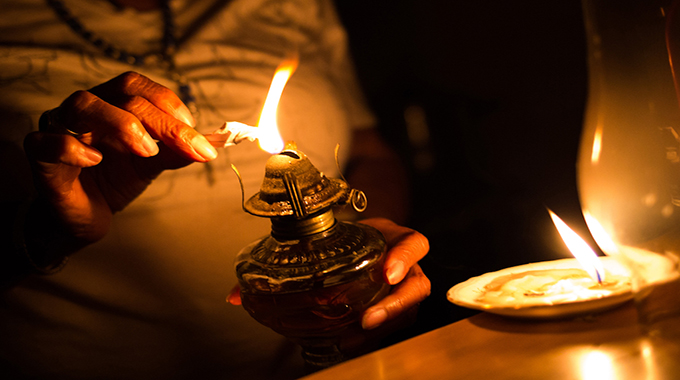If you’re so angry about load shedding, then what?

Lenox Lizwi Mhlanga
ARE we as Zimbabweans so vain in thinking that the world should be full of nice people? I have never come across such a bunch of angry people. If we were to tap the negativity some of us generate, we are sure to be rid of load shedding.
And if it’s any comfort, ask the South Africans how they feel about load shedding.
This is a family news platform so I won’t dare the steady stream of expletives from Down South.
I am not making any excuses for the current calamity in the power generation sector. Zimbabwean entities should learn that criticism is fine, especially when some of us are from the ‘I told you so’ brigade.
We tend to learn the hard way. We knew that this day was coming but chose to ignore the signs. While we tear our hair out in frustration, let’s smell our armpits for a second.
John Sugerman once said that each problem has hidden in it an opportunity so powerful that it dwarfs the problem. He said that the greatest success stories are created by people who recognise a problem and turn it into an opportunity.
Sir Wicknell almost got it with his Gwanda solar project, until he saw another opportunity to make a fast buck. Renewable energy stares us in the face. And it does not take a rocket scientist to realise this.
While trying to make light a frustrating situation, Botswana also had a long period of load shedding. That is in spite of all those diamond monies they have in their reserves. So the problem is not about unavailability of electricity. It’s about generation, planning and a management problem. That is what we need to fix in the whole region.
As an example, some of you might not be aware that I spent the best of three years in Botswana. That is before making an acrimonious and embarrassing exit. I am still bitter at the way I was treated by the authorities in that country, particularly the Immigration Department. You all know how those people are like from the experience at the border.
For months on end, I was an unwilling client at their then stuffy offices in Francistown. It was a dehumanising experience to put it mildly. I found it exceedingly downgrading for me, a potential investor, to be queuing for service with aspiring maids and perspiring farm boys and girls.
It took Batswana authorities six long months to deny me a residence permit. The reason given was that my business was ‘not viable.’ I disagreed and came out convinced that abantu laba kabasithand’nex!
From the arid verges of the Kgalagadi desert, I returned home to Bulawayo. Not wanting to venture into gold panning, I headed further north to Harare, the city that never sleeps.
Bambazonke is where the money is. It’s a city that is full of itself, kuwonererwa — to use the local jargon. Yet people there are under no pretence about why they are there — to make money and lots of it.
So why blame me of all people, stripped to the bare bones, without a plan, for following the money making trail? The mountain won’t come to Mohammed, then why prevent Mohammed from going to the mountain?
Taking the cheapest steel camel available, and carrying the barest of luggage, I found myself heading north. The journey reminded me of the stark reality of our daily grind for survival. Some enterprising conglomerates even saw the need for fast food outlets in Kadoma and Chegutu.
Arriving in Harare was a shock. There seemed to be more cars than people! If that’s a sign of prosperity, then it had spread to Bulawayo too. Harare is also known for speed and I was soon swept by the tide hanging on to my hat for dear life.
I have since shaken off the effects of my ‘Themba comes to town’ experience and got into the scheme of things. Wheeling and dealing is the pulse of Harare.
It’s a story of who thinks fastest. You have the rare opportunity to meet people who make things happen. That’s why I am there, and have no regret. Which brings me back to the critical question, riled by load shedding, what are you doing about it?











Comments